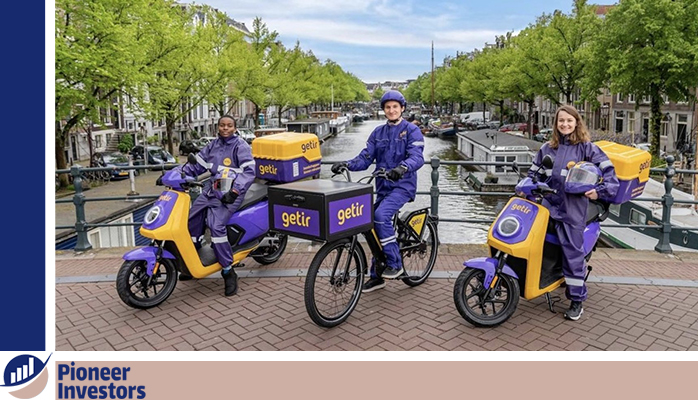Turkish grocery delivery startup Getir has raised $550 million and its value nearly $7.5 billion

getir startup in turkey
Pioneers Investors – Turkish grocery delivery startup Getir has raised $550 million in a new investment round, valuing the company at nearly $7.5 billion.
The Istanbul-based company has raised new money from Silver Lake, Mubadala, Sequoia and Tiger Global. Getir has now raised nearly $1 billion in three separate funding rounds so far in 2021. The last time the company was privately valued at $2.6 billion was in a funding round in May.
It’s the latest sign of frantic venture capital investment in the express grocery delivery space. Apps promising groceries shipped to customers’ doors in just 10 minutes are popping up across Europe, with a host of companies from Turkey’s Getir to German Gorillas raising huge sums from investors.
These companies operate so-called “dark shops”, which are fulfillment centers designed to fulfill orders online rather than serving customers in person. Gorillas and UK rivals such as Dija and Zapp are hiring their own carriers rather than relying on contractors such as Deliveroo and other players in the temporary job’s economy.
Gorillas is reportedly seeking an investment round of at least $500 million that would value the company at around $6 billion, according to Bloomberg. Gorillas declined to comment when contacted by Future News.
Elsewhere in the space, German rival Flink said Friday that it has raised $240 million in new money from Prosus, Bond and Mubadala Capital.
Getir, which launched in London and Amsterdam earlier this year, plans to use the new money to expand into Paris, Berlin and several cities in the United States. This will see the company compete directly with the likes of food delivery giants that have expanded into groceries, such as Uber and DoorDash, as well as privately owned startup Instacart.
“Getir is in high demand and groceries are delivered quickly,” Getir founder Nazim Salor said in a statement on Friday. “As market leaders, we continue to excel through continuous innovation to provide industry standards.”
The coronavirus pandemic has greatly increased the phenomenon of express grocery delivery, as people are spending more time indoors due to lockdown restrictions around the world. However, it has become a very competitive market. Some experts doubt that the model can be sustainable in the long term, especially given the level of investment required for expansion.




